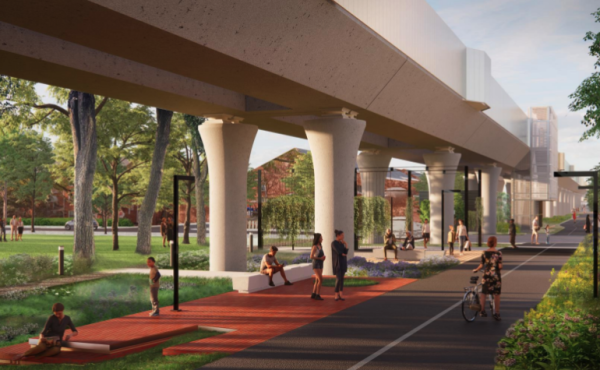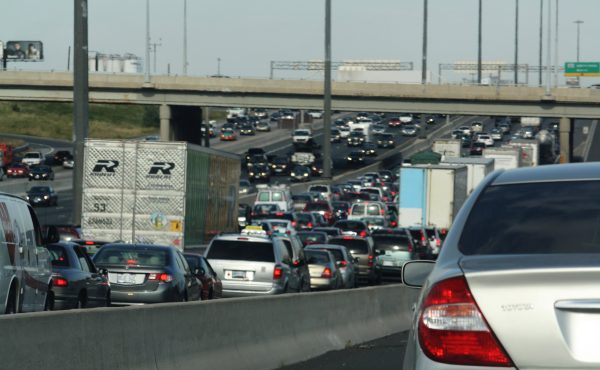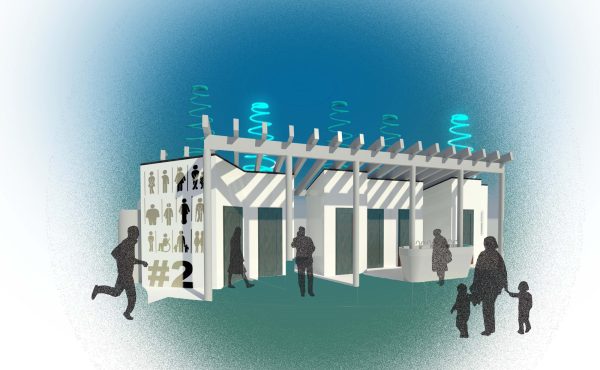
Cross-posted to Spacing Votes
I sometimes watch City Council meetings on Rogers. Today I turned it on and found councillors debating whether to buy a landfill near London, Ontario. Here’s info from CBC.ca’s website.
Toronto Mayor David Miller announced Tuesday that the city plans to buy a landfill site near London, Ont., in a move to keep the city’s trash troubles from piling up.
“This purchase is critical for the future of the city,” Miller told reporters at city hall. “It allows us the opportunity to control our own future and … to provide security to the people of Toronto over the next decade.”
No details were immediately available on how much the city expects to pay for the 130-hectare Green Lane Landfill, located north of Highway 401 and southwest of London.
City councillors must vote on the deal before it is set to close on Wednesday. After that, city staff would negotiate to finalize the details.
A few hours later I was at City Hall and walked in as Council voted on the matter. It passed overwhelmingly.
What this probably does is take the “garbage issue” right our of the election. By buying the landfill, any politician can now declare that the City now has a colution to its rubbish woes. There will be some public outrage that Council decided to vote on this without calling an emergency meeting of the Works Committee in order for residents to make public deputations. And they might have a good point.
On the other hand, City staff were directed by Council to find solutions to the problem (which is/was the desire of most constituents, councillors will tell you). If the public found out that Council lost the opportunity to buy a landfill that will meet all of the city’s trash needs because it missed a deal-closing deadline in order to hear deputations, voters could be outraged.
This story will develop over the next few days and I’m very interested to see how it is played out. I’d also love to hear your thoughts.
photo from Rutgers University




10 comments
Our solution (as always) is to find another hole and bury it. Unless it is followed by a comprehensive plan that includes waste to energy projects then this is same old same old and the description of Miller as Left is one of the greatest cons ever.
Whatever issue is important to this city, “Dig a hole and bury it”.
I don’t really know how I feel about it. I do know the city does a pathetic job of waste diversion in multi-unit residences. I hope very much that with this quick fix solution city hall wont completely back out of its previous (and still much needed) plans to divert waste and encourage less garbage.
Huh. My understanding was that most or all of today’s special meeting would be in camera.
Even that same CBC story states that “Councillors spent much of Tuesday debating the issue in an in-camera session, which is usually reserved for confidential issues such as land deals and lawsuits.”
I had four hours to kill this afternoon that I would have loved to have spent at Council, had I known I could have had access to the meeting.
Scott – you left out something…
‘Whatever issue is important to this city, “Dig a hole SOMEWHERE ELSE and bury itâ€Â.’
Here’s the London Free Press:
TO Dumps on us
http://lfpress.ca/newsstand/News/Local/2006/09/20/1866829-sun.html
“Miller promised to be a good neighbour to London and St. Thomas, and council voted to investigate building a 401 off-ramp directly to the dump.”
How about building a rail spur instead and keeping the trucks off the 401?
It seems to me that putting it in a hole it better then putting it in the air.
When you put it into a hole, is it really out in the environment? No. It is in a hole. While a fraction of it may leach out of the hole, most of it will still be there. I expect in the future, we will develop technology to go back to landfills and extract useful materials (plastic could get valuable with no oil).
With inceneration, all the garbage is dumped directly into the atmosphere, to spread everywhere. The air, the land, the water. Some of it will be less toxic was before, assuming the inceneration works perfectly at all times. The heavy metals will still be there. The CO2 will be released, rather then stored. There is no chance to recycle anything in the future.
With landfills, you can always incenerate it lator, if you are sure it is a good idea.
Yes, it is still a dump. But at least we own it and can get some money out of it.
Over at Spacing Votes, Lorinc says that planning should start right away to figure out what to do when this thing closes. I would agree with him, but he has the comments turned off.
Darwin
the technology to turn plastic back to liquid hydrocarbon already exists – google “thermal depolymerisation”.
As for CO2 – true, but it would displace other CO2 sources such as Nanticoke if used for electricity generation and district heating so it wouldn’t necessarily be a full net gain. If incinerated within the 416 you also don’t have the losses in power over transmission lines. The ash residue can be used as road fill rather than be landfilled.
I just really hate the attitude that municipalities can dump their problems on other municipalities or even other provinces/states. If we want to live modern lives of convenience then we should be forced to accept and deal with the consequences, or change our routine to demand less packaging, less waste and better recycling.
Mark, what’s your rationale for your apparent position that every municipality should dispose of their waste within their own borders?
AS for garbage issue,I have found a way to use,
garbage to make power with out eny after efects,
and stop the issue of where to put the garbage,
with the power you can make trash in to liquid,
fertulizer yes liqued fertulizer , with a 80%
return.